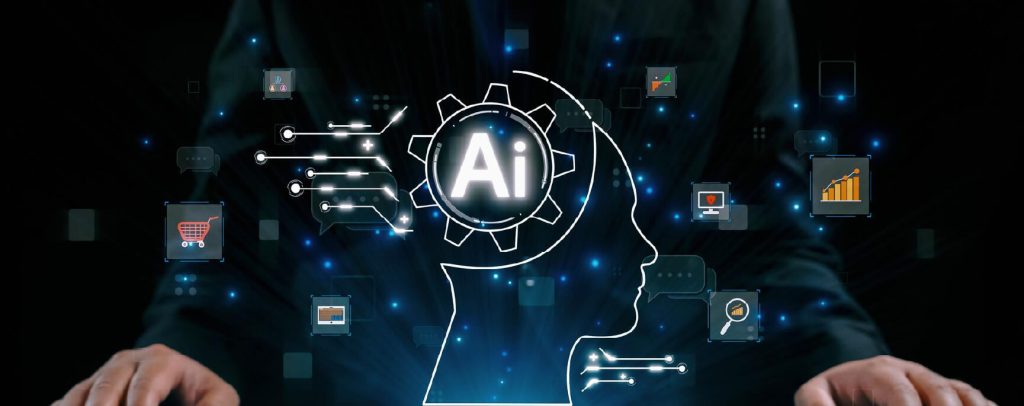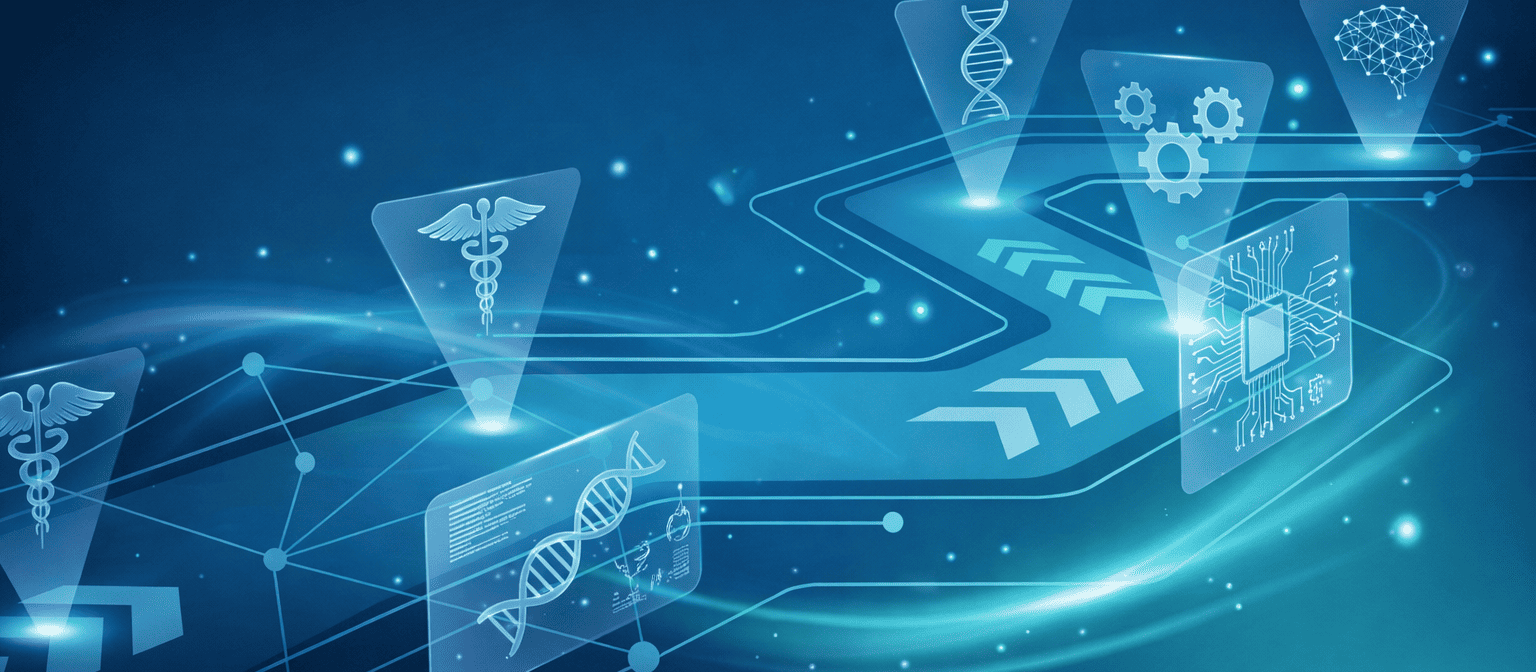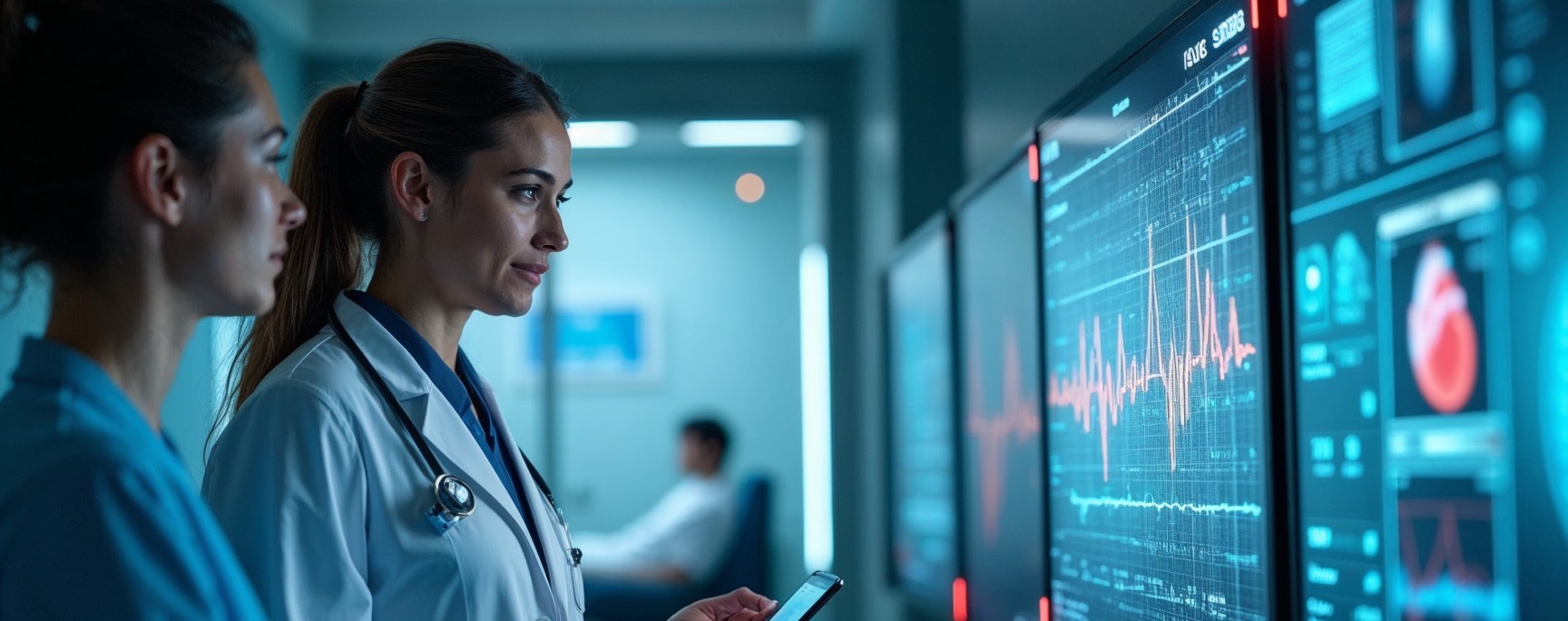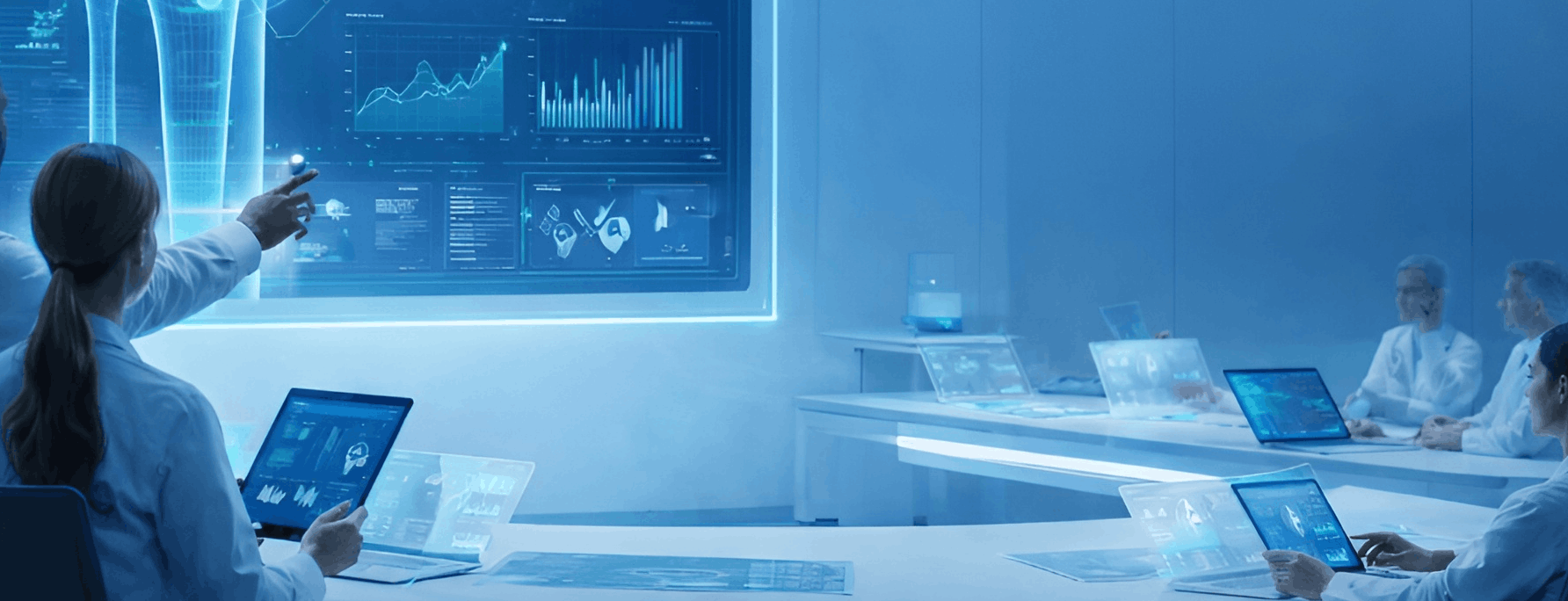How Generative AI in Product Development is Revolutionizing HealthTech
Generative AI in product development is transforming the world of healthcare product engineering by enabling the creation of new content – text, images, code, and more—with speed and precision. Using enormous data sets and sophisticated algorithms, GenAI makes it possible to create novel healthcare products and services that were previously unimaginable. From speeding up drug discovery to tailoring patient treatment & optimizing operations, Generative AI in healthcare is revolutionizing the way healthcare products are developed and distributed.
AI product engineering can make organizations up to 50% faster to market, up to 40% less cost in development, and up to 60% higher product performance. Organizations adopting AI-powered Product Engineering are set to find a lot of success. This blog explores how Generative AI is revolutionizing AI product engineering in healthcare technology, with a focus on its applications in healthcare and broader implications for AI-driven product engineering.
AI Product Engineering for HealthTech Applications
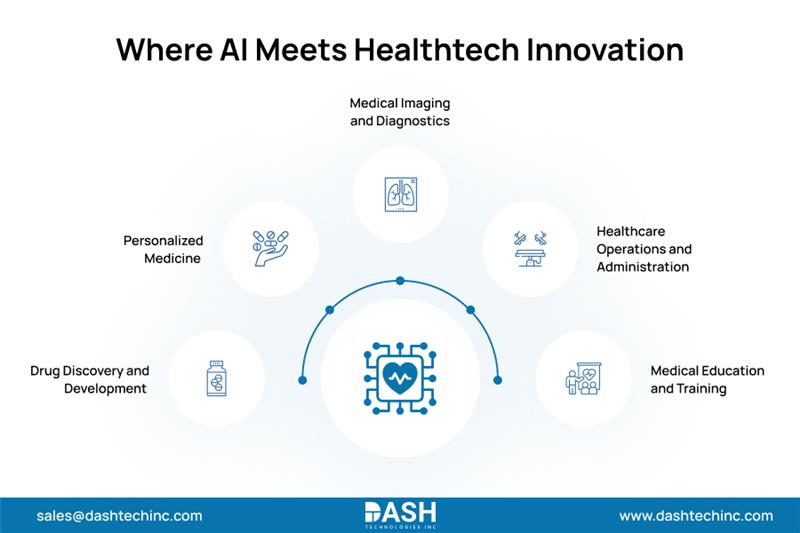
Drug Discovery and Development
Generative AI accelerates the drug discovery process, which is traditionally time-consuming and costly often requiring years and billions of dollars. Generative AI is helping to discover new drugs by sifting through large amounts of molecular and biological data, looking for possible drug candidates, much faster than traditional methods. Researchers used Generative AI to discover 40,000 novel chemical compounds within 6 hours. This would have taken years with regular methods. The traditional process for the discovery of drugs for pulmonary fibrosis has taken on average 12-15 years during the pre-clinical phase, but this was cut to 30 months with Generative AI.
Generative AI in product development for HealthTech is also being used to design new molecules and to predict protein structures, which are vital steps in drug development. AI algorithms can also generate synthetic data that can be used to simulate and test drug interactions, eliminating the need for physical experiments and further speeding up the process. Generative AI has the potential to transform AI product engineering for HealthTech by enabling new drugs to be rapidly developed.
Personalized Medicine
Generative AI in product development has a lot of potential, and personalized medicine is one of the most exciting ones. Generative AI can help create treatment plans tailored to each patient by analyzing extensive patient data, including electronic health records (EHR), genomic information, and clinical notes. This not only enhances the effectiveness of treatments but also reduces side effects, resulting in improved outcomes for patients.
For instance, Generative AI can analyze data from wearable devices to monitor vital signs, such as heart rate variability and blood glucose levels. This lets doctors find health problems early and treat them quickly. Generative AI in healthcare utilizes pharmacogenomics to determine how individuals will respond to specific medications based on their genetic makeup. This makes prescribing drugs more accurate. Tempus and Freenome are some of the companies that are using Generative AI in healthcare to create personalized cancer treatments by looking at tumor genomics and other patient data.
Medical Imaging and Diagnostics
Generative AI is changing the way medical imaging works by making diagnostic images clearer and more accurate. Generative Adversarial Networks (GANs) and other methods are used to generate synthetic medical images, like MRI or CT scans. These images can be used to train other AI models or aid in diagnosis. GANs are composed of two neural networks that compete to generate data, which is why they are well-suited for creating realistic data.
Generative AI assists radiologists in identifying abnormalities in X-rays, MRIs, and CT scans. The Journal of Medical Imaging published a study that found GANs had a Dice coefficient of 0.89 for brain MRI segmentation, which means they were highly accurate in identifying brain structures. Generative AI in product development can also help find diseases like cancer early by looking at patterns in medical images that people might not be able to detect. This makes AI-driven product engineering better in diagnostics.
Reimagine HealthTech with GenAI
The future of healthcare innovation lies in intelligent systems that adapt, predict, and scale. With GenAI, eliminate bottlenecks and deliver value at speed—with Dash by your side.
Start Your AI JourneyHealthcare Operations and Administration
Generative AI can help automate certain healthcare operations to relieve administrative burden, such as consultation transcription, optimized scheduling, and prediction of rejected insurance claims. 40% of the healthcare industry’s total working hours are devoted to language-based tasks that can be transformed by GenAI. For instance, AI-powered virtual assistants can handle scheduling and send reminders for medications when they are connected to electronic health records (EHR) systems.
Generative AI can also be used to automate revenue cycle management, including billing and minimizing errors, thus saving healthcare professionals between 41–50% of time. Engineering AI-powered solutions like Codametrix or Adonis.io can save time for healthcare administration.
Medical Education and Training
Generative AI can be used to create realistic simulations and provide personalized learning experiences for medical students and professionals. For example, Generative AI in healthcare can be used to create virtual reality (VR) and augmented reality (AR) simulations for medical training purposes. These simulations can allow medical students to practice medical procedures and diagnoses in a safe and controlled environment. Generative AI can also be used to generate realistic medical images for educational purposes. Additionally, Generative AI can improve the quality of medical text translations, making it easier for medical students and professionals to access educational materials in their native languages.
Generative AI can be used to develop interactive learning modules, which can teach complex medical concepts. Generative AI can also be used to simulate patient interactions, allowing medical students to gain practical experience without the risks associated with real-world patient care. This is an example of Generative AI in product development, as the technology is used to develop new and advanced educational products.
Core Benefits of Generative AI in Product Engineering
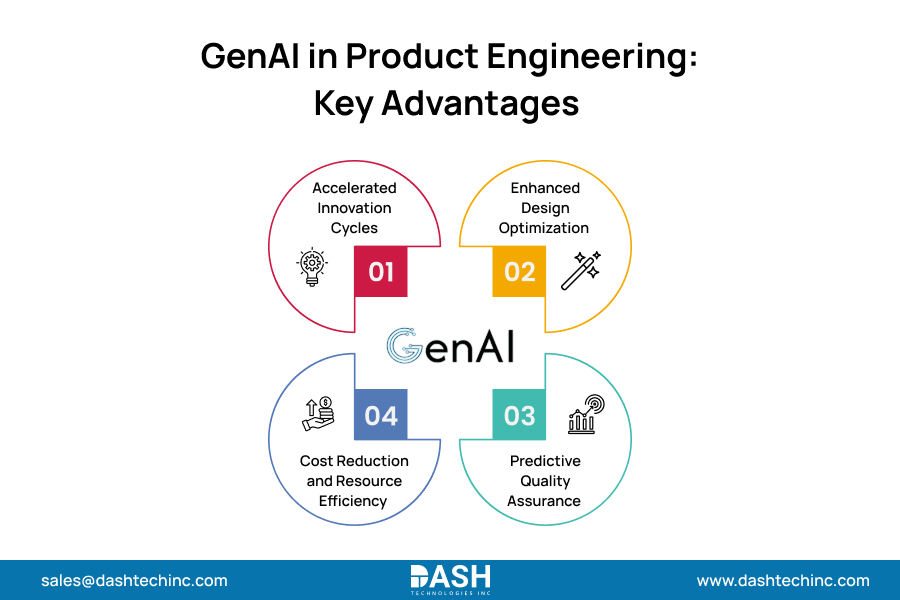
Accelerated Innovation Cycles
When developing products the traditional way, there are often long iteration cycles and a lot of manual testing. Generative AI speeds up these processes by automating design exploration and optimization in product development. In the time it used to take to look at dozens of designs, engineering teams can now look at thousands.
Enhanced Design Optimization
AI algorithms are capable of processing multi-variable optimization scenarios that would be impractical, if not impossible, for human engineers to analyze manually. This ability makes it possible to make products that are lighter, stronger, more efficient, and less expensive than designs that have been around for a long time.
Predictive Quality Assurance
Generative AI can predict future quality issues by analyzing historical performance data and manufacturing processes. This proactive approach to quality management reduces defects, minimizes recalls, and enhances patient satisfaction.
Cost Reduction and Resource Efficiency
Companies that have adopted AI-driven engineering report cost savings from optimized use of materials and reduction in waste, and leaner processes. Generative AI in product development can help lower material costs, for example.
Final Thoughts
Generative AI is making a significant impact on product engineering within the healthcare industry, and the potential for it to revolutionize the industry is enormous. By accelerating drug discovery, personalizing treatment plans, streamlining operations, and improving education, Generative AI is already making a positive impact on healthcare.
However, to make the most of it, there are issues to address, such as maintaining data privacy, adhering to regulations, and ensuring AI systems are accurate and fair. As healthcare groups utilize more Generative AI in their product development, the future of HealthTech looks brighter. We can expect care that is more efficient, useful, & personalized, thanks to AI-powered engineering solutions. To accelerate your next project with the latest in AI, connect with Dash Technologies’ team of experts today.
About Dash

Dash Technologies Inc.
We’re technology experts with a passion for bringing concepts to life. By leveraging a unique, consultative process and an agile development approach, we translate business challenges into technology solutions Get in touch.
